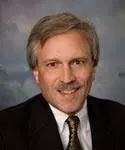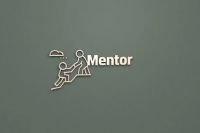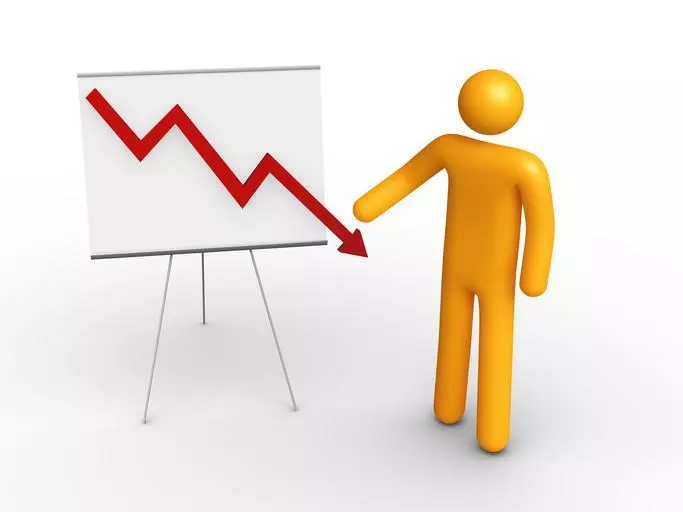Do you think of yourself as a hero – especially in your workplace? Regardless of your answer, you are probably more heroic than you think ...

A while back, I started reading an intriguing book that I recently picked up again. Conversations That Win The Complex Sale, by Erik Peterson and Tim Riesterer, deals with "power message" conversations. One of the sections describes a simplified model of Joseph Campbell's "The Hero's Journey." The authors distill Dr. Campbell's 17-step model to the following 5 steps:
- The world is normal.
- Something changes.
- The hero pushes back.
- Enter the mentor.
- The hero saves the day.

Here’s the intriguing part – the authors then go on to use the original "Star Wars" movie to illustrate the 5 steps:
- Luke Skywalker is working on his uncle's farm ... and he’s bored.
- Luke meets R2D2 and C3PO, and learns about Princess Leia. Shortly afterwards, his uncle's farm is destroyed.
- Luke initially resists the call to action.
- Obi Wan Kenobi mentors Luke, and helps him develop his skills and believe in himself.
- Luke defeats the Death Star and saves the day!
When I write about a client project, it may seem I'm making Todd Herman Associates (THA) out to be the hero. I'm not. Our client is Luke Skywalker – the hero. THA is Obi Wan Kenobi – the mentor who helps our client.
What Makes a Hero?
In the book I mentioned, step 3 in the hero model – "The hero pushes back" – occurs when a client with a problem denies he has a problem that needs solving. He pushes back against reality and resists the call to action.
Once denial sets it, the mind is closed to even hearing ways to fix a problem. What does it take for the person to revisit the problem and consider how it might be solved? Generally, some sort of pain or deadline – a negative consequence of NOT solving the problem.
To me, in a business context, a hero is a person who …- Sees things clearly,
- Admits a problem exists and needs fixing,
- Realizes the fix requires skills or resources he lacks, and
- Possesses the maturity and self-confidence to search for a mentor – someone to help him solve the problem.
 |
 |
Why Our Clients Are Heroes
Looking back over the past 28 years, we have secured virtually all of our clients because a hero had a problem and came looking for a mentor to help solve it. Does a mentor look down upon the hero seeking help? Of course not! The hero has strong knowledge and experience in many areas, and the mentor respects these. Both persons know the hero lacks the mentor's specific knowledge and experience, and both approach the relationship with mutual respect and in the spirit of true collaboration.
Even though I don't usually write the client's story in the 5-step format (I focus on steps 4 and 5), the full stories all follow the 5 steps. Thus, let me share the backstory of a few memorable projects.

What Heroes Look Like – Frank
When I was an auditor, I served a large pantyhose manufacturer for several years. A few months after I left Arthur Andersen & Co. to start THA, the Corporate Controller – we'll call him "Frank" – of this former audit client wanted to meet with me.
Frank told me the two largest manufacturing plants had large physical inventory shrinks, which occur when inventory is counted and valued, and comes up less than the value in the financial statements. Frank and the company's internal auditor had each tried to find causes for the shrinks, and struck out. We talked, and Frank engaged me (back then, it was just me) to try my hand at finding the issues.
Frank was a hero in need of a mentor. While he was an outstanding controller – and went on to become the CFO of several other large companies – he lacked the time and auditing skills needed to do this project. For each plant, it took me 500 hours to trace the inventory processing from beginning to end – how goods were made and physically moved, how production and movement were tracked on the floor, and how source records from the floor were recorded in the accounting system. Frank could not have spared half a year away from his real duties.
Now, consider what Frank COULD have done. Rather than finding and resolving root causes of inventory shrink, he COULD have recorded each month a pro rata amount of the estimated annual inventory shrink, and then used this accumulated amount to more or less offset the actual shrink.
What's wrong with that approach? Even though the FINANCIAL records would have ended up in the same place, the INVENTORY records would not have been corrected. If your inventory records are wrong, how do you know what you need to make, or what's available to ship when a customer places an order? You don't.
So, Frank not only faced reality and overcame any denial he might have had – he also "did the right thing" by not fudging the financial records to cover up problems in the inventory records. To me, that makes Frank a hero.

What Heroes Look Like – George
Fast forward 25 years, and consider "George," the president and owner of a small manufacturing and services company specializing in event marketing. George was given my name by BOTH his executive coach AND his CPA on the SAME day!
George had a good problem – his customers LOVED his company's products and services! In fact, they loved them so much, they wanted George to take on more business and serve their EXACT SAME needs at other types of events. George wanted to say "yes" to his customers, yet realized he had two problems growth would exacerbate – and could hurt his company's financial performance and solid reputation.
Problem #1 – When the business was smaller, it made only one type of product and did not wrap any services around it – and the existing processes and technology handled this very nicely. As new, more complex products were successfully added, and then services successfully developed to provide a turn-key solution, the company's processes and technology did not change to accommodate the new reality. They were not meeting the existing requirements. Taking on more business would have crashed them completely.
Problem #2 – The company's net income, while good, was not growing as quickly as revenues. George realized that some customers were likely more profitable than others, yet his only tool to monitor this was the Income Statement. Costs were not traced to customer jobs, and thus George could not pinpoint the problem jobs.
George was another hero in need of a mentor. Like Frank, neither he nor his staff had the time, skills, or experiences to address these two problems. Thus, George took the advice of his two trusted advisers, contacted us to set up a meeting, and engaged us to help him address these issues.
Again, consider what George COULD have done. He COULD have been content with the way things were, and told his staff to just "deal with it" when they hit the limits of their process and technology. He COULD have accepted new business without knowing whether or not expansion would be profitable.
George is NOT the kind of person who would say or do either thing! He is future-oriented, exudes energy and positivity, and wants to do right for all parties – his customers, his staff, his company, and himself. To not want to make things better goes against his character. In fact, these qualities make George a hero.

Could You Be "Frank" or "George"?
If you're reading this e-newsletter, the odds are very good you have found yourself, or will find yourself, in a situation like Frank or George. If you already have, hopefully you've gotten past the third step, "The hero pushes back," went on to find a mentor, and eventually saved the day.
If you’re contentedly in the first step, “The world is normal,” then by all means savor it. You might also want to file this e-newsletter so you can find it in the future.
If, however, you are confronting the second step, "Something changes," or are in the midst of the third step, “The hero pushes back,” now might be the time to seek out a trusted mentor such as Todd Herman Associates. Just call or email, and let's discuss how THA could make you the hero of your own story.
Sincerely,

Todd L. Herman







